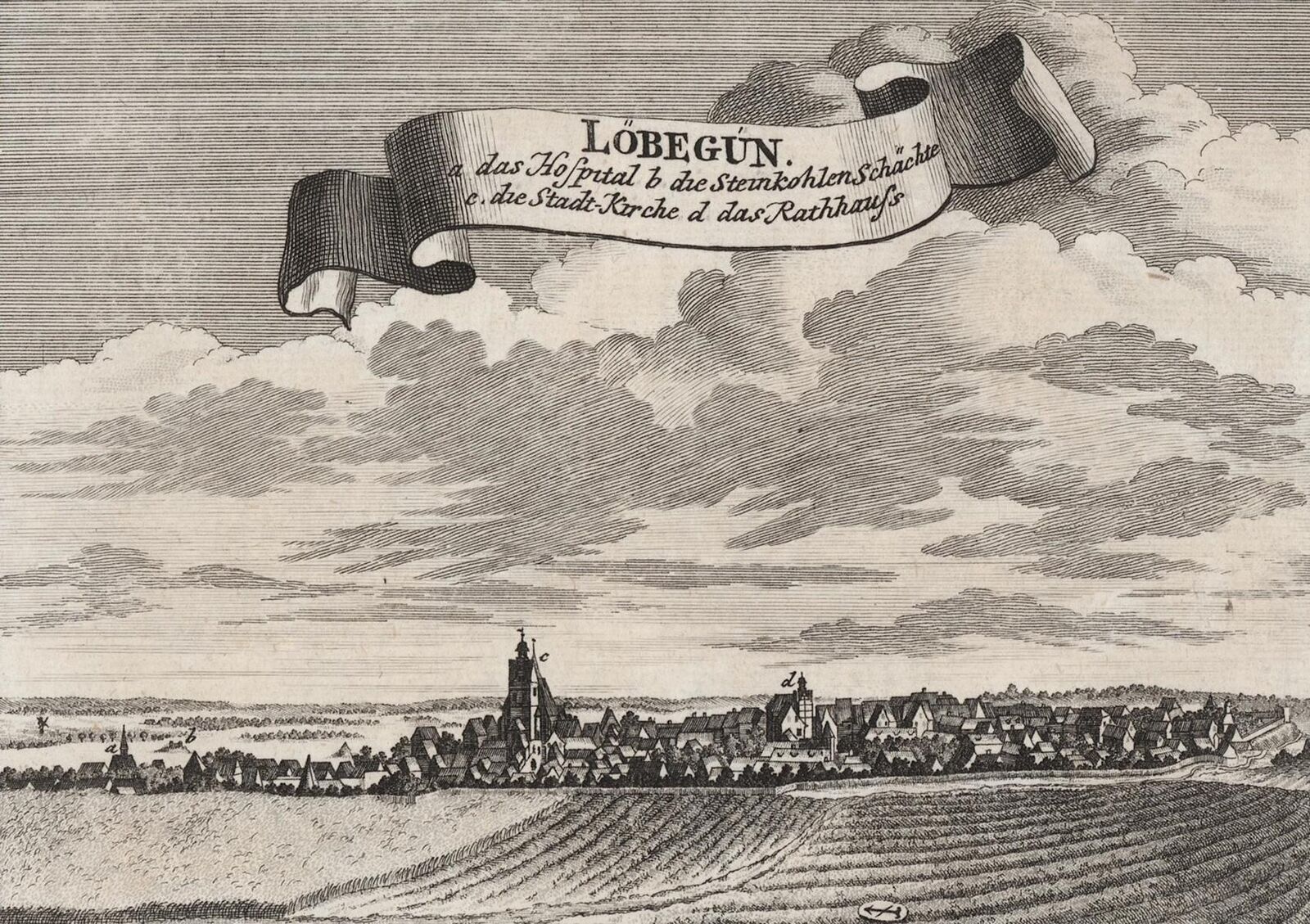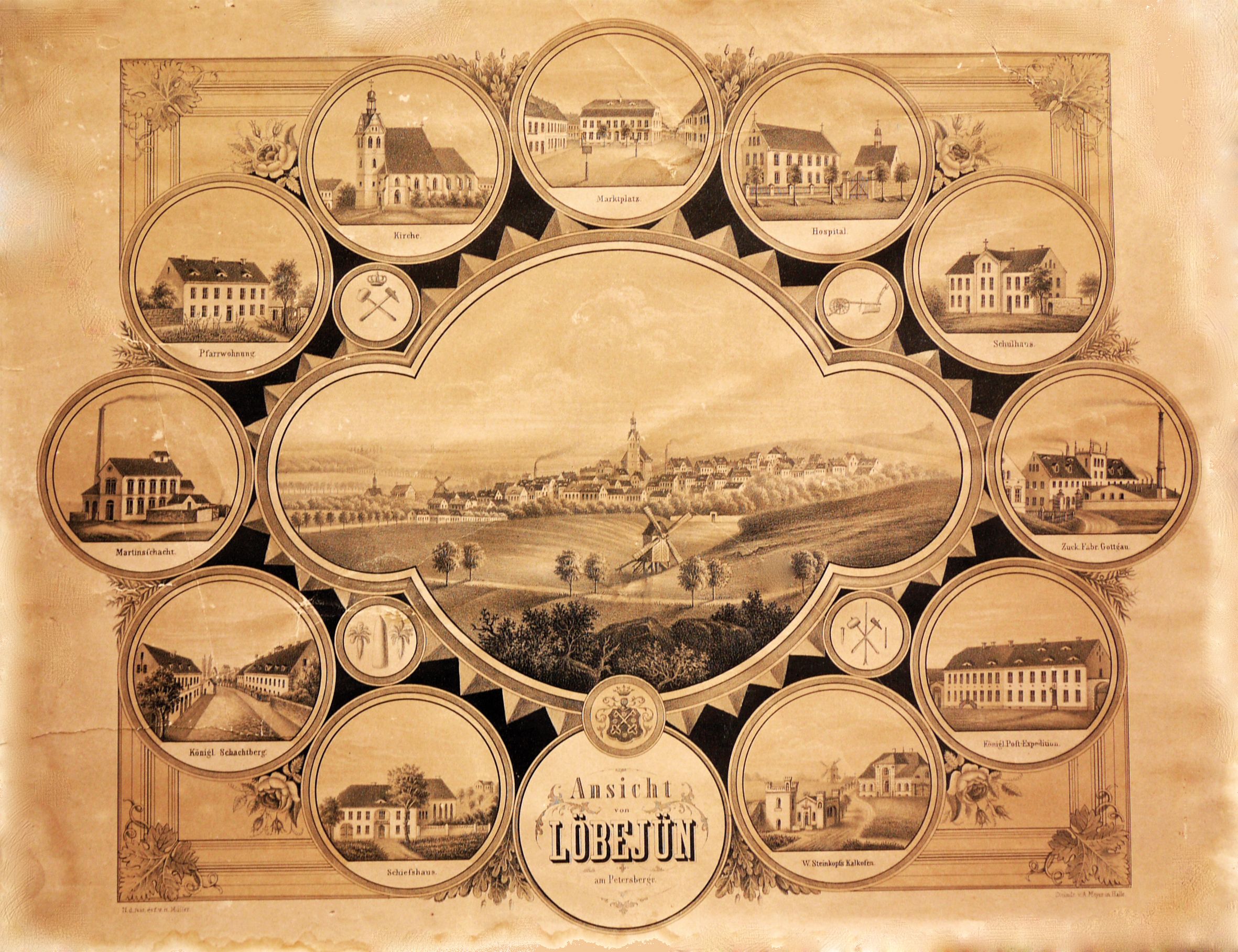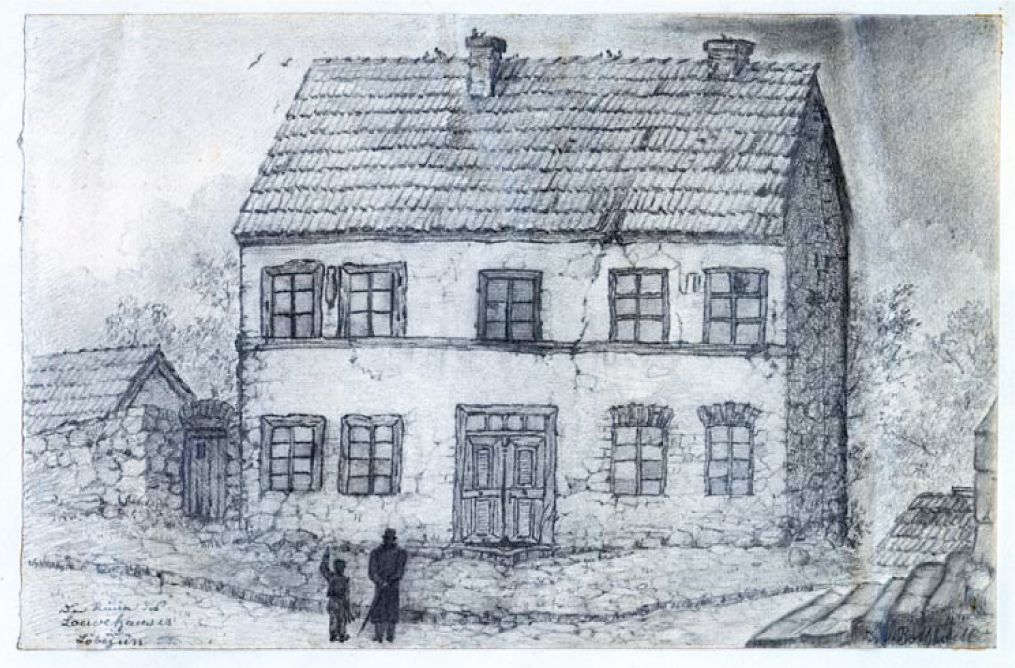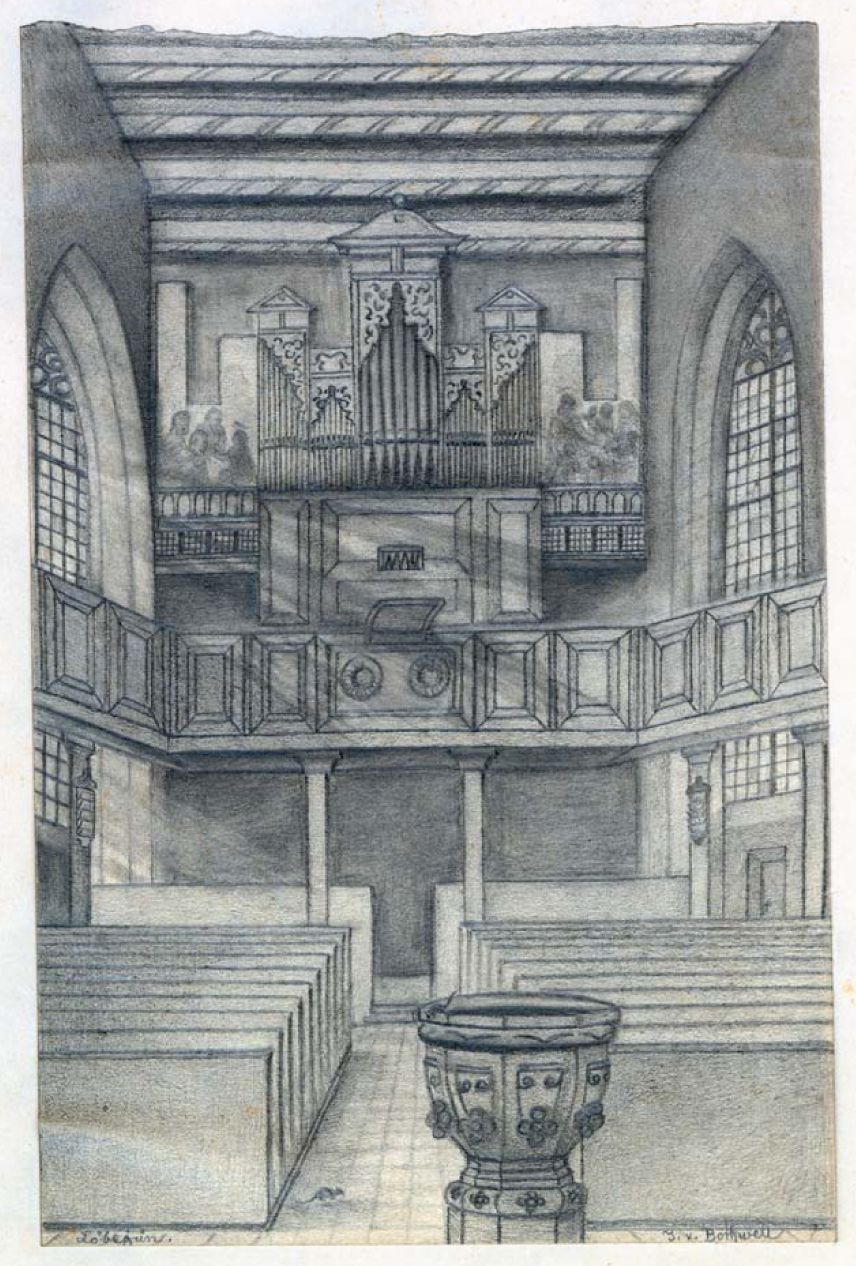Childhood and Education
At the time of Loewe's birth, Löbejün was a typical small town, characterized by agriculture, crafts, the royal coal mines and the private porphyry quarries.
The puffing of the first steam engine in Germany based on Watt's design, which was used from 1797 to 1848 to keep water in the nearby mine, accompanied the young Loewe and inspired his imagination, as did the miners' stories about the eerie coal shafts and the ghosts that lived there.
The marshy Fuhne lowlands with frequent fog, stony forest gorges on the Petersberg, populated with fairies and goblins, the small town with a city wall and four city gates, surrounded by forests and meadows, had a lasting influence on the young Loewe's mind. He developed a deep love of nature, a close familiarity with plants and animals. The practical work in the field and in the garden, as well as the evening walks with amazed looks at the starry sky, influenced the romantic emotional life of the sensitive and highly gifted boy. These influences were later reflected in many of his compositions.
Loewe received his first musical training in his parents' home, especially from his father, who was a teacher and cantor at the St. Petri city church.
The entire Christian atmosphere in Loewe's parents' house, the chorale and church music practiced by his father, his mother's occasional violin playing, and the recital of Bürger's ballads by his sister Marie Rosina, who was almost 12 years older, had a lasting influence on Carl's further musical development.
The invasion of Napoleon's troops (after the Battle of Jena and Auerstedt) and the uncertain financial situation prompted the young Loewe's father to accept the Köthen cantor's offer to join his choir in 1806 with free lessons in the art of singing. Unfortunately, no significant musical development took place there.
By assigning Halle - and also Löbejün - to the newly established Kingdom of Westphalia and the resulting seemingly safer political situation, the father organized the further education of his youngest son in Halle, where he and his two older sons August Friedrich and Ludolph Andreas were already educated. They were members of the Stadtsinge choir, which was affiliated with the newly founded Latin secondary school under director Daniel Gottlieb Türk.
During this phase of reconstruction, the young Carl Loewe was accepted into the choir. Here he determined the profile of the choir for several years through his singing qualities, which were intensively encouraged by Türk.
Performances by the choir and its soloist Carl Loewe impressed King Jerome of Westphalia in 1810, so he granted Carl Loewe a scholarship and later promised him a career at his court. Through this scholarship, Loewe dedicated himself exclusively to private studies with Türk.
After this scholarship ceased (collapse of Napoleonic power) and also after Türk's death, Carl Loewe financed his life from 1813 primarily by managing the organist position at the Marktkirche in Halle. His musical maturation process began when he re-entered the Latin secondary school in 1814.
His compositional talent became publicly known through his masterpiece - the setting of Goethe's Erlkönig (Op. 1). Through his singing skills, the doors of higher social circles in Halle opened for the simple cantor's son. With financial support from the city of Löbejün, he began studying theology at the Friedrichs University in Halle in 1817, where he took part in the social student life, especially in the Marxian circle.
Keferstein, Loewe's college friend, later theologian in Jena, often accompanied Loewe to private meetings in the house of the art-loving Prof. Ludwig Heinrich von Jakob (curator of the university, founder of the first savings bank) and reported in 1840 that he "still thinks of the apparition with pleasure "I think back to a young blonde man... who, especially when he recited the ballads that were written at the time, carried everything away with him." In the house of Jacob's State Councilor, Loewe met and fell in love with his daughter Julie. Keferstein reported: "He had never heard Mozart's and other duets performed with a warmer expression than by this couple, united in the most enthusiastic love of their youth."
During this time, contacts also emerged with Carl Maria von Weber in Dresden.
Loewe's application for the cantor position at the Jacobi Church in Stettin after completing his studies was, among other things, supported by recommendations from the Chancellor of the University of Halle, Niemeyer. After taking up his position in Stettin, Carl Loewe married his Julie, who, however, died shortly after the birth of their first son Julian after a happy marriage of one and a half years.






